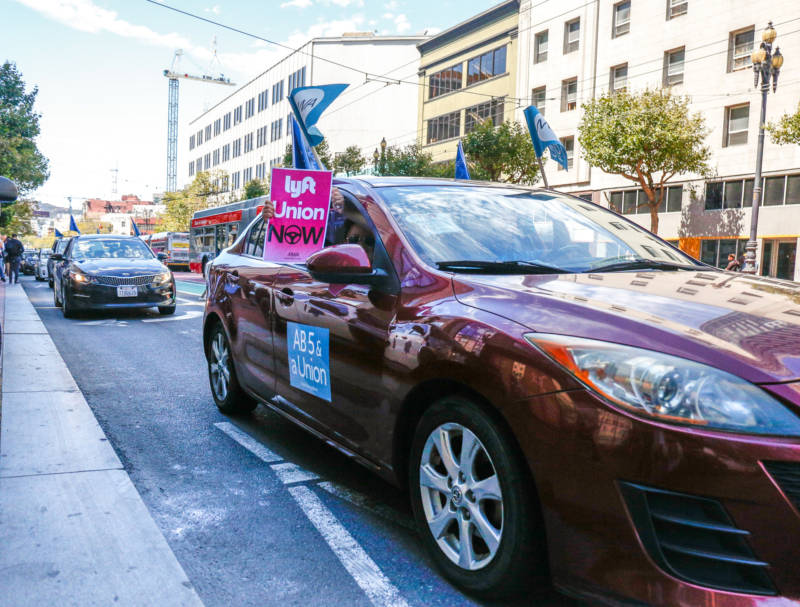Since Uber and Lyft launched almost a decade ago, their drivers have lacked most basic worker protections, including a guaranteed minimum wage, overtime pay, workers’ compensation and unemployment insurance.
That’s because, from the onset, the two ride-hailing giants categorized drivers as independent contractors rather than employees, a tactic adopted by subsequent startups like DoorDash, Postmates and Instacart. It’s at the heart of the business model that fuels what is now called the “gig economy.”
And for years, drivers and other workers in the gig economy have been fighting to be recognized as employees and have pushed to get the backing of lawmakers.
On Tuesday, they scored a big victory.
California Attorney General Xavier Becerra, joined by city attorneys in San Francisco, Los Angeles, San Diego and other jurisdictions across the state, filed a lawsuit against Uber and Lyft over their use of contractors. The suit aims to force the two companies to recognize their workers as employees under the authority of Assembly Bill 5, a state law that went into effect this year that significantly limits which workers can be classified as contractors.

